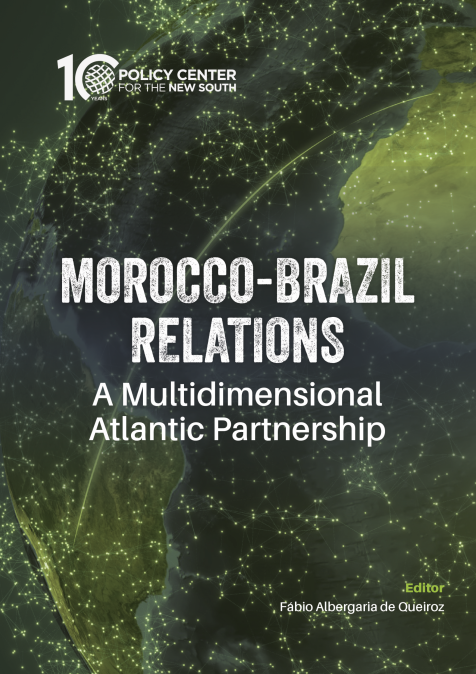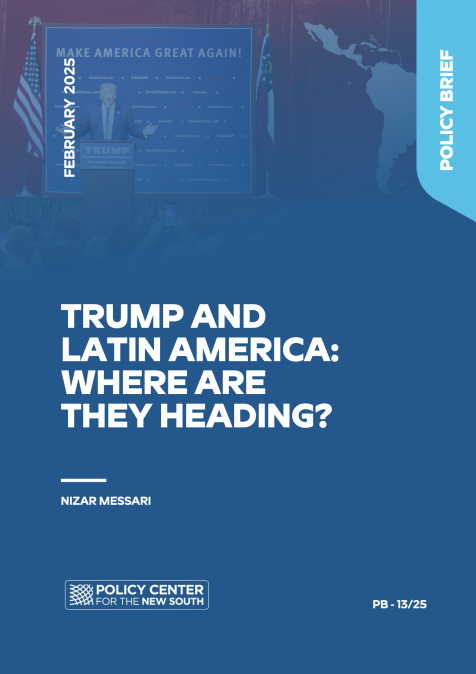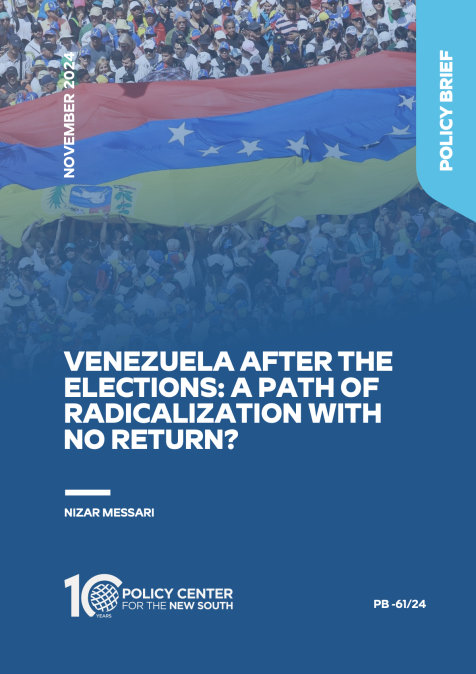In this episode, Steven Höfner explores the role of international foundations in regional governance and diplomacy. Where he emphasizes the significance of multilateral dialogue in promoting stability and cooperation, and highlights the importance of fostering transatlantic relationships to address global challenges, such as governance and security.
RELATED CONTENT
-
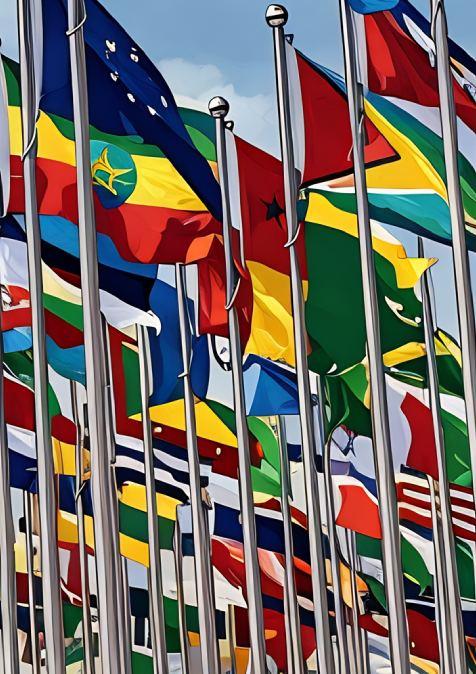 AuthorsFlorencio VentéMarch 14, 2025The author of this opinion, Florencio Venté, is a 2024 alumnus of the Atlantic Dialogues Emerging Leaders Program. Culture, diasporas, and diplomacy are strongly connected when it comes to promoting exchanges and fostering social inclusion, economic development, and the building of transcontinental bridges. In this blog post, I explore the nexus of these three areas and how they can serve as pathways to achieve cohesion across the Atlantic and beyond. Culture is crucial in promotin ...
AuthorsFlorencio VentéMarch 14, 2025The author of this opinion, Florencio Venté, is a 2024 alumnus of the Atlantic Dialogues Emerging Leaders Program. Culture, diasporas, and diplomacy are strongly connected when it comes to promoting exchanges and fostering social inclusion, economic development, and the building of transcontinental bridges. In this blog post, I explore the nexus of these three areas and how they can serve as pathways to achieve cohesion across the Atlantic and beyond. Culture is crucial in promotin ... -
AuthorsNabil AdghoghiAlexandre ParolaFábio Albergaria de QueirozPaulo Eduardo Aguiar Saraiva CamaraAna Flávia Barros-PlatiauAdnane LahzaouiGuilherme Lopes da CunhaJacintho Maia NetoNizar MessariMelina Moreira Campos LimaAndreia Rute da Silva BaptistaCarlos Henrique Tomé SilvaMarch 5, 2025A country's areas of strategic interest are defined by its values, principles, and expectations. In this context, unprecedented opportunities are emerging for two key Atlantic States—Brazil and Morocco—to forge a mutually beneficial partnership. This premise underscores the deep-rooted social and geohistorical connections between both sides of the Atlantic. Recognizing this potential suggests that building stronger Atlantic bonds could advance shared interests, grounded in an evolvi ...
-
AuthorsNizar MessariFebruary 24, 2025Latin America was barely mentioned in US President Donald Trump’s 2024 electoral campaign. Expectations were that President Trump would remain uninterested in Latin America, while Latin America would show pragmatism and restraint in its dealings with him. However, surprisingly, Latin American has been at the forefront of Trump’s agenda since his re-election. Aside from migration, which was already prominent in Trump’s electoral campaign, although as an internal issue, there is also ...
-
February 21, 2025In this episode, Steven Höfner explores the role of international foundations in regional governance and diplomacy. Where he emphasizes the significance of multilateral dialogue in promoting stability and cooperation, and highlights the importance of fostering transatlantic relationship...
-
February 19, 2025شهدت المنطقة المغاربية خلال عام 2024 انتخابات رئاسية في ثلاث دول محورية: موريتانيا، الجزائر، وتونس. جاءت هذه الانتخابات في سياقات سياسية واقتصادية مختلفة، مما أدى إلى نتائج متباينة أثارت جدلًا واسعًا حول مدى تأثيرها على استقرار المنطقة. في هذه الحلقة، سنناقش أبرز مخرجات هذه الانتخابات،...
-
Lula at Midterm: The G20 Summit in Brazil at the Intersection of Domestic and Foreign Policy AgendasAuthorsNizar MessariDecember 18, 2024The G20 Summit held in November 2024 in Rio de Janeiro, Brazil, under the Brazilian G20 presidency, showed what decentering from the Western agenda and Western domination of world politics could mean. The summit’s main achievement was the constitution of an Alliance against Hunger and Poverty, with a membership of, and funds mobilized from, not only all G20 members, but also from more than 60 other countries. In fact, what the West showed was discomfort at not having its agenda, its ...
-
 AuthorsNovember 28, 2024ربما شكّلت نتائج الانتخابات الأمريكية مفاجأةً للعديد من المراقبين، حيث أظهرت العديد من الدروس المهمة حول التحولات الجديدة المرتبطة بإدارة الرأي العام وقدرة هذا الأخير على التعبير عن توجهاته بطرق قد تكون مدهشة، خاصة للمتخصصين في مجال ما يُطلَق عليه "علم اتجاهات الرأي العام" "، الذي يتسم بأساليب معقدة من الحيل والخدع والتضليل . وقد شكّل دونالد ترامب تحديًا كبيرًا أمام وسائل الإعلام، خصوصًا تلك التي تُحسب على التيار الديمقراطي والتي سعت جاهدة شيطنته وإقصاءه من المشهد الإعلامي. لكن، رغم ...
AuthorsNovember 28, 2024ربما شكّلت نتائج الانتخابات الأمريكية مفاجأةً للعديد من المراقبين، حيث أظهرت العديد من الدروس المهمة حول التحولات الجديدة المرتبطة بإدارة الرأي العام وقدرة هذا الأخير على التعبير عن توجهاته بطرق قد تكون مدهشة، خاصة للمتخصصين في مجال ما يُطلَق عليه "علم اتجاهات الرأي العام" "، الذي يتسم بأساليب معقدة من الحيل والخدع والتضليل . وقد شكّل دونالد ترامب تحديًا كبيرًا أمام وسائل الإعلام، خصوصًا تلك التي تُحسب على التيار الديمقراطي والتي سعت جاهدة شيطنته وإقصاءه من المشهد الإعلامي. لكن، رغم ... -
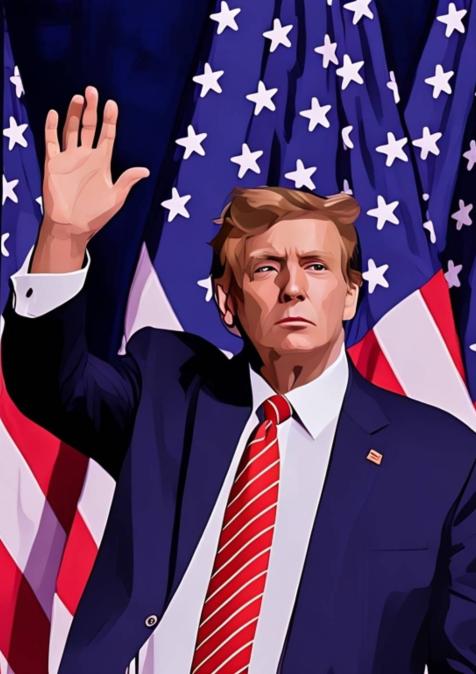 AuthorsNovember 27, 2024إذا تبنينا نهج التحليل الديمقراطي لتفسير أسباب الهزيمة ودرسنا أسباب صعود ترامب مقابل تراجع الديمقراطيين، نجد أن السردية المطروحة غالبًا ما تفترض أن الرأي العام يجب أن يتبنى تلقائيًا الخيار الديمقراطي ، وأن أي انحراف عن ذلك يعكس وجود خلل ما . غير أن هذا التحليل ، يكشف أن الخلل الأول يكمن في طبيعة الحزب الديمقراطي الأمريكي نفسه، الذي انزلق نحو النمطية المطلقة وفقد بذلك الكثير من جاذبيته وصورته التي كانت تسوقه كحزب "تقدمي" أو "مستنير". إلى جانب ذلك، ساهم الحزب الديمق ...
AuthorsNovember 27, 2024إذا تبنينا نهج التحليل الديمقراطي لتفسير أسباب الهزيمة ودرسنا أسباب صعود ترامب مقابل تراجع الديمقراطيين، نجد أن السردية المطروحة غالبًا ما تفترض أن الرأي العام يجب أن يتبنى تلقائيًا الخيار الديمقراطي ، وأن أي انحراف عن ذلك يعكس وجود خلل ما . غير أن هذا التحليل ، يكشف أن الخلل الأول يكمن في طبيعة الحزب الديمقراطي الأمريكي نفسه، الذي انزلق نحو النمطية المطلقة وفقد بذلك الكثير من جاذبيته وصورته التي كانت تسوقه كحزب "تقدمي" أو "مستنير". إلى جانب ذلك، ساهم الحزب الديمق ... -
AuthorsNizar MessariNovember 14, 2024Developments in Venezuela since the presidential election of July 28, 2024, epitomize the fault lines of contemporary world politics. The elections failed to clarify the political situation in Venezuela. Instead, they complicated it. The official electoral authority declared Mr. Nicolás Maduro the official winner of the elections, with a narrow but comfortable margin, while the opposition also declared its candidate, Mr. Edmundo González Urrutia, the legitimate winner of the elect ...
-
 AuthorsImane LahrichNovember 5, 2024This brief presents an analysis of key trends and observations from the 2024 U.S. presidential election, in which I participated through the American Council of Young Political Leaders (ACYPL) Election Exchange Program, organized in collaboration with the U.S. Department of State. The program offered a comprehensive exploration of contemporary U.S. electoral dynamics, focusing on party strategies, demographic shifts, media influence, and campaign finance. The insights presented here ...
AuthorsImane LahrichNovember 5, 2024This brief presents an analysis of key trends and observations from the 2024 U.S. presidential election, in which I participated through the American Council of Young Political Leaders (ACYPL) Election Exchange Program, organized in collaboration with the U.S. Department of State. The program offered a comprehensive exploration of contemporary U.S. electoral dynamics, focusing on party strategies, demographic shifts, media influence, and campaign finance. The insights presented here ...

